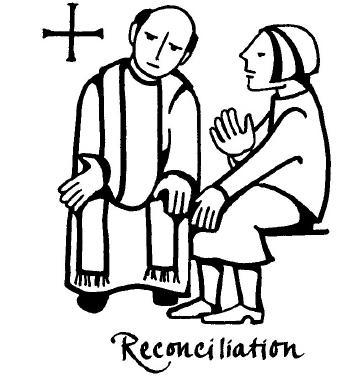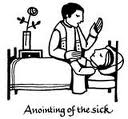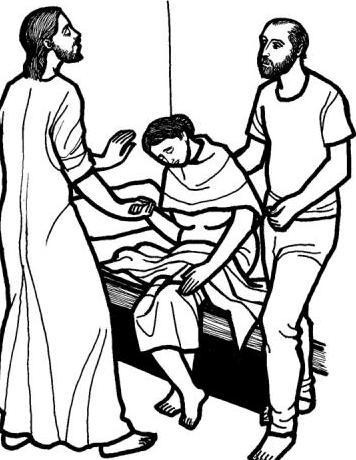'Therefore confess your sins to each other and pray for each other so that you may be healed.'


Sacrament of Penance is the method of the Church by which individual men and women may confess sins committed after baptism and have them absolved by a priest. Although it is not mandatory, the Catholic rite is usually conducted within a confessional box, booth or reconciliation room. This sacrament is known by many names, including penance, reconciliation and confession. While official Church publications always refer to the sacrament as "Penance", "Reconciliation" or "Penance and Reconciliation" many laypeople continue to use the term "Confession" in reference to the Sacrament.
For the Church, the intent of this sacrament is to provide healing for the soul as well as to regain the grace of God, lost by sin. The Church teaches that sacramental confession requires three "acts" on the part of the penitent: contrition (sorrow of the soul for the sins committed), disclosure of the sins (the 'confession'), and satisfaction (the 'penance', i.e. doing something to make amends for the sins)
For more information on confession visit our teaching page



Anointing of the sick is administered to bring spiritual and even physical strength during an illness, especially near the time of death. It is most likely one of the last sacraments one will receive. A sacrament is an outward sign established by Jesus Christ to confer inward grace. In more basic terms, it is a rite that is performed to convey God’s grace to the recipient, through the power of the Holy Spirit.
Like all the sacraments, holy anointing was instituted by Jesus Christ during his earthly ministry. The Catechism explains, "This sacred anointing of the sick was instituted by Christ our Lord as a true and proper sacrament of the New Testament. It is alluded to indeed by Mark, but is recommended to the faithful and promulgated by James the apostle and brother of the Lord" (CCC 1511; Mark 6:13; Jas. 5:14-15).
The anointing of the sick conveys several graces and imparts gifts of strengthening in the Holy Spirit against anxiety, discouragement, and temptation, and conveys peace and fortitude (CCC 1520). These graces flow from the atoning death of Jesus Christ, for "this was to fulfil what was spoken by the prophet Isaiah, ‘He took our infirmities and bore our diseases’" (Matt. 8:17).
Laying on of hands is the most widely practiced means of prayer ministry. It gives the intercessors the opportunity to offer their hands for Jesus to use to touch the one for whom they pray.
In the laying on of hands, there is much communicated to the other person. Somehow love seems to flow through the touch of one person to another. The laying on of hands can be a comfort to the intercessor as well as the supplicant.
The practice takes seriously the understanding that we are the Body of Christ. Jesus truly does dwell in us, and will use us as His Body to speak through us, to listen and love through us and touch through us as we yield our bodies to Him. It is not that we wield the power, but that we yield to the power of Jesus who is able to heal.
There are many who sometimes feel the flow of energy through their hands as they pray for people. There are times when the one for whom prayer is offered will feel the flow of energy as the hands are upon them. While these signs are a blessing and assurance to those involved.
Healing Ministries